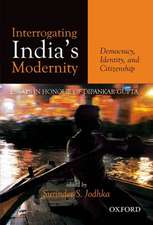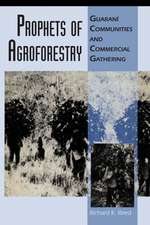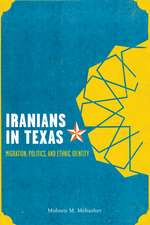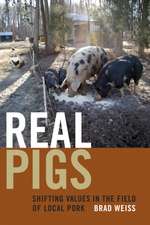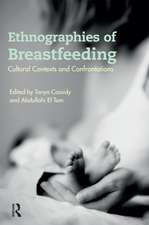Gender and the Boundaries of Dress in Contemporary Peru
Autor Blenda Femeníasen Limba Engleză Paperback – mai 2004
Moving between metropolitan Arequipa and rural Caylloma Province, the central characters are the Quechua- and Spanish-speaking maize farmers and alpaca herders of the Colca Valley. Their identification as Indians, whites, and mestizos emerges through locally produced garments called bordados. Because the artists who create these beautiful objects are also producers who carve an economic foothold, family workshops are vital in a nation where jobs are as scarce as peace. But ambiguity permeates all practices shaping bordados' significance. Femenías traces contemporary political and ritual applications, not only Caylloma's long-standing and violent ethnic conflicts, to the historical importance of cloth since Inca times.
This is the only book about expressive culture in an Andean nation that centers on gender. In this feminist contribution to ethnography, based on twenty years' experience with Peru, including two years of intensive fieldwork, Femenías reflects on the ways gender shapes relationships among subjects, research, and representation.
Preț: 277.53 lei
Nou
Puncte Express: 416
Preț estimativ în valută:
53.11€ • 57.67$ • 44.61£
53.11€ • 57.67$ • 44.61£
Carte tipărită la comandă
Livrare economică 23 aprilie-07 mai
Preluare comenzi: 021 569.72.76
Specificații
ISBN-13: 9780292702639
ISBN-10: 0292702639
Pagini: 384
Ilustrații: 36 b&w photos, 3 b&w illus., 2 b&w maps
Dimensiuni: 152 x 229 x 15 mm
Greutate: 0.45 kg
Ediția:New.
Editura: University of Texas Press
Colecția University of Texas Press
Locul publicării:United States
ISBN-10: 0292702639
Pagini: 384
Ilustrații: 36 b&w photos, 3 b&w illus., 2 b&w maps
Dimensiuni: 152 x 229 x 15 mm
Greutate: 0.45 kg
Ediția:New.
Editura: University of Texas Press
Colecția University of Texas Press
Locul publicării:United States
Notă biografică
Blenda B. Femenías is a Research Associate at the Haffenreffer Museum of Anthropology at Brown University in Providence, Rhode Island.
Cuprins
- Acknowledgments
- Introduction. False Borders, Embroidered Lives
- 1. Traveling
- 2. Fabricating Ethnic Frontiers: Identity in a Region at the Crossroads
- 3. Clothing the Body: Visual Domain and Cultural Process
- 4. Addressing History: Representation and the Embodiment of Memory
- 5. Dancing in Disguise: Transvestism and Festivals as Performance
- 6. Marching and Meaning: Ethnic Symbols and Gendered Demonstrations
- 7. Making Difference: Gender and Production in a Workshop System
- 8. Trading Places: Exchange, Identity, and the Commoditization of Cloth
- Conclusion. Why Women Wear Polleras
- Notes
- Bibliography
- Index
Descriere
Why people wear clothes, why people make art, and why those things matter in a war-torn land.

